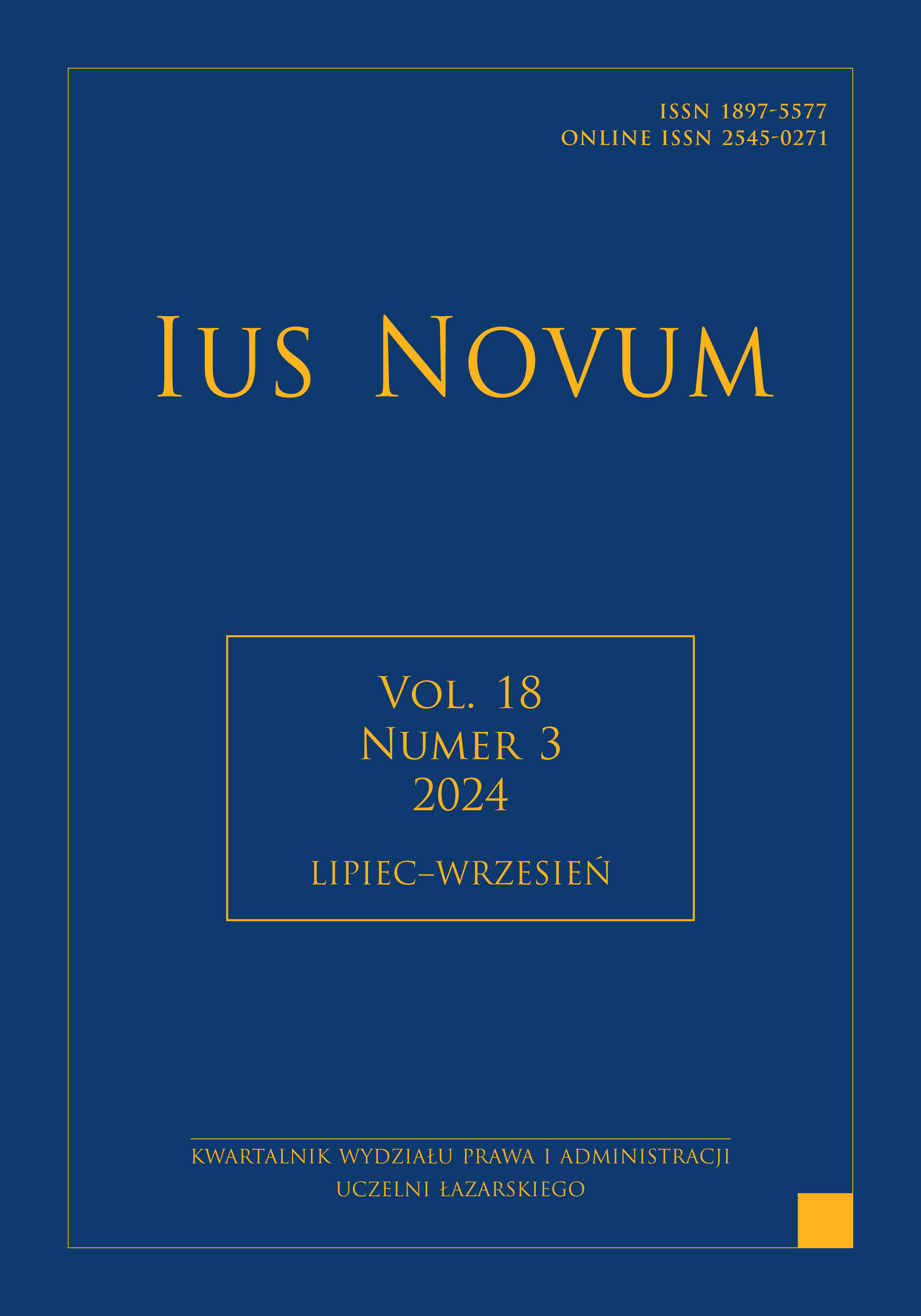Abstract
Article 1 of Protocol No. 1 to the Convention for the Protection of Human Rights and Fundamental Freedoms provides that every natural and legal person has the right to the peaceful enjoyment of his possessions. No one shall be deprived of his possessions except in the public interest and subject to the conditions provided for by law and in accordance with the general principles of
international law. The purpose of these laws is primarily to protect property. By recognizing that everyone has the right to respect for their possessions, Art. 1 of Protocol No. 1 to the Convention for the Protection of Human Rights and Fundamental Freedoms in fact guarantees the right to property, and deprivation of property is permissible only under certain conditions. In national jurisprudence, these guarantees are not sufficiently implemented. Although compensation is provided for by the commune (Article 18(3a) of the Act on the protection of tenants’ rights, housing resources of the municipality and amending the Civil Code). However, the courts are too strict in assessing the evidentiary requirements imposed on applicants. In the case of Wyszyński v. Poland, where the applicant had not been awarded domestic damages by the municipality for failing to provide social housing, the Court rightly noted that the courts assumed that the applicant had failed to prove that the damage suffered by him was the normal consequence of the municipality’s unlawful omission, although In the course of the proceedings, as many as two expert opinions were obtained. In the case of Broniowski v. Poland, in the area of property beyond the Bug River, it was clearly indicated that the taking of property without compensation in reasonable proportion to its value is usually considered a disproportionate interference, and a total absence of compensation can only be justified exceptionally. It also seems indispensable when assessing the existence of an adequate causal link to appeal in this respect, leaving it to the knowledge and life experience of the adjudicating panel, applied appropriately to the circumstances of the case. The requirements as to the proof of damage cannot be understood too strictly. There is a need to liberalize the evidentiary proceedings and make broader use of factual presumptions (Article 231 of the Code of Civil Procedure) as well as limiting the evidence to substantiation in order to ensure that the owner effectively seeks compensation from the commune for failure to provide social housing. Clear intervention by the legislator is necessary to overcome the defective court practice. It would be advisable to make an explicit procedural reference to the application of Art. in this category of cases. 322 of the Code of Civil Procedure not only in terms of the amount of damage but also the fact that it occurred.
References
Czachórski W., Prawo zobowiązań w zarysie, Warszawa 1968.
Czachórski W., Ustalenie wysokości odszkodowania według przepisów Kodeksu zobowiązań, NP 1958, nr 4 i 5.
Czachórski W., Zobowiązania. Zarys wykładu, Warszawa 1974.
Banaszczyk Z., w: K. Pietrzykowski, Kodeks cywilny. Tom I. Komentarz do art. 1–449(10), t. I, Warszawa 2011.
Dąbrowa J., Odpowiednie ograniczenie rozmiarów obowiązku naprawienia szkody na tle Kodeksu cywilnego, PiP 1968, nr 1.
Dziczek R., Komentarz do ustawy o ochronie praw lokatorów, mieszkaniowym zasobie gminy
i zmianie Kodeksu cywilnego, w: Ochrona praw lokatorów. Dodatki mieszkaniowe. Komentarz. Wzory pozwów, Lex 2020, komentarz do art. 18.
Fuchs B., w: Fras M., Habdas M. (red.), Kodeks cywilny. Komentarz. Tom III. Zobowiązania. Część ogólna (art. 353–534), komentarz do art. 361 k.c., wersja Lex.
Garlicki L., Hofmański P., Wróbel A., Konwencja o Ochronie Praw Człowieka i Podstawowych Wolności, t. 1, Komentarz do artykułów 1–18, Warszawa 2010.
Jastrzębski J., Dyferencyjna metoda ustalania szkody w sprawach reprywatyzacyjnych – krytyczne uwagi na tle orzecznictwa Sądu Najwyższego, PS 2016, nr 3.
Kaliński M., w: System Prawa Prywatnego, t. 6, Prawo zobowiązań – część ogólna, red. A. Olejniczak, Warszawa 2009. Kaliński M., Szkoda na mieniu i jej naprawienie, Warszawa 2014.
Koch A., Metodologiczne zagadnienia związku przyczynowego w prawie cywilnym, Poznań 1975.
Krzekotowska K., Malinowska-Wójcik M., Ochrona praw lokatorów i mieszkaniowy zasób gminy, wyd. II, Lex 2021, komentarz do art. 18. Łazarska A., Rzetelny proces cywilny, Warszawa 2012.
Nesterowicz M., w: Prawo prywatne czasu przemian. Księga pamiątkowa dedykowana Profesorowi Stanisławowi Sołtysińskiemu, red. A Nowicka, Poznań 2005.
Nowicki M.A., Broniowski przeciwko Polsce wyrok ETPC z dnia 22 czerwca 2004 r., skarga nr 31443/96.
Nowicki M.A., Komentarz do art. 1 Protokołu nr 1 do Konwencji o Ochronie Praw Człowieka i Podstawowych Wolności, w: Wokół Konwencji Europejskiej, Komentarz do Europejskiej Konwencji Praw Człowieka, wyd. VIII stan prawny na 1 lipca 2021 r., wersja Lex.
Nowicki M.A., Nowy Europejski Trybunał Praw Człowieka. Wybór orzeczeń 1999–2004, Zakamycze 2005.
Ohanowicz A., Zobowiązania. Zarys według Kodeksu cywilnego. Część ogólna, Warszawa–Poznań 1965.
Olejniczak A., Kidyba A. (red.), Kodeks cywilny. Komentarz. Tom III. Zobowiązania – część ogólna, Komentarz do art. 361, wyd. II, Lex 2014.
Radwański Z., Olejniczak A., Zobowiązania, Warszawa 2012.
Szpunar A., Rozważania nad odszkodowaniem i karą, PiP 1974, nr 6.
Szpunar A., Ustalenie odszkodowania w prawie cywilnym, Warszawa 1973.
Szpunar A., Ustalenie odszkodowania według przepisów Kodeksu cywilnego, NP 1965, nr 4.
Szpunar A., Zakres obowiązku naprawienia szkody, PiP 1960, nr 1.
Tuora-Schwierskot E., Prawo własności w prawie wspólnotowym a regulacje prawa krajowego, w: B. Stępień-Załucka, Konstytucyjne prawo własności – sposoby naruszenia i środki ochrony, Warszawa 2021.
Vollkommer M., Einleitung, Zöller, Kommentar zur Zivilproezesordnung, 29 wyd. 2010.
Winiarz J., Ustalenie wysokości odszkodowania, Warszawa 1962.

This work is licensed under a Creative Commons Attribution-NonCommercial-ShareAlike 4.0 International License.

